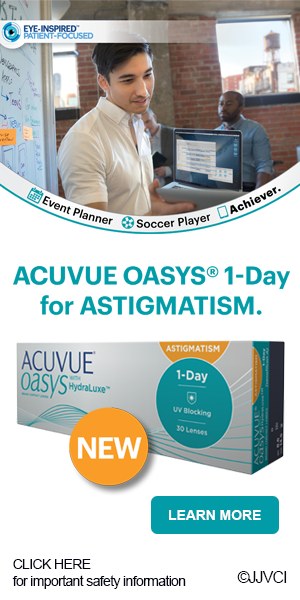Optometry is a field of medicine that is constantly expanding but the population is often unaware of the changes that have made us into primary care physicians. For us, being an optometrist is so much more than being a good refractionist but unfortunately that is all most patients think about when they hear “optometrist”. Our education prepares us to practice medical optometry, which makes us primary care physicians who are capable of detecting early signs of life threatening, systemic diseases. Sadly, our patients and communities are vastly undereducated about our abilities and the general importance of regular vision exams. They are left with the impression that they only need to come into our offices when they have blurry vision. It is our job to start educating our patients, our communities and the professionals in our areas that a visit with an optometrist is about so much more than seeing 20/20, because lets face it, nobody is going to do it for us.
If we want to build our practices and take our patient care to the next level, we need to make sure our patients know that we are here to treat so much more than blurry vision. We are here to take care of both their ocular and general health. I, like many other optometrists thought most patients understood this until I spent some time speaking with my friends and family at a party. One person even told me he was going to see an ophthalmologist because, “I am old and I probably have cataracts so I need an MD”. I realized I had failed my own family because I had not taken the time to educate them on what optometrists do and why we are one of their first lines of defense against ocular disease and systemic disease detection.
So the real question is, how do we change the perception of our families and the commonalities in which we work?
The answer is simple, start talking. Talk about what you do, what you treat, how you treat it and how important early detection is for ocular AND systemic health. Sure, none of us really want to go out to a happy hour with friends and talk about eyes all night, when we worked with them all day. However, spending 5 minutes telling your friends a quick story about detecting diabetic changes in an undiagnosed patient will help your friends to start thinking about eyes as more than just something we see through.
Talk about how we are trained to detect and manage early stage disease and ophthalmologists are trained to manage end stage complication. Explain that as primary care doctors our goal is to prevent our patients from ever needing an ophthalmologist by keeping any disease in its early stages. Stop patients from believing all pathology and diseases need to be treated by an ophthalmologist. It is our job to educate our communities about our abilities and transform the perception of optometrists.
Talk to your patients. No, it does not need to add chair time, I promise. Talk to them while you are preforming slit lamp or taking photos or even walking them out to your optical. Talk to them about health. They already know you can help them see but do they know you can help them stay healthy? The best way to change the perception about optometry is to start right in your office. Look at the education you are providing your patients. Do you take the time to make them aware of the risks of UV light to their eyes? Do you take the time to explain to your hypertensive or diabetic patients why a dilated exam every year is important or do you just tell them to come back next year with no explanation as to why they need the dilation?
Talk to people at health fairs. These are great places to not only promote your practice but also to get people thinking about eye care as part of their general healthcare. You can display information and talk about ARMD, diabetes and hypertensive ocular manifestations, as well as things that you specialize in, perhaps glaucoma detection or pediatric care. You can educate parents to bring their children to you, the doctor who specializes in eyes, when their child has red, swollen or watery eyes because you are specifically trained to treat these things and PCPs are not.
Talk to children at schools. Make them interested in their eyes. Take a day and do a school screening. Send letters home to parents of children who show signs of ocular complications explaining how an eye exam may help the child’s performance in school. Talk to high school coaches and sports directors about the importance of vision protection and how important good vision is for sports performance (you can have the same conversations with local construction companies and unions).
Talk to local pediatricians, endocrinologists and cardiologists about your skill set and set up co-management agreements that ensure patient’s systemic conditions are managed on all levels and that the patient is receiving the highest level of care possible.
Talk to local companies and larger corporations to advocate that companies remove labels on products that say, “in case of contact with your eyes please seek an ophthalmologist” when we know it should read “eye care provider”.
The real point is never stop talking. Make sure everyone you know and meet is aware of how important vision care is to SYSTEMIC health. The more you talk, the more you explain, the more your community will react by seeking out optometric care to help them manage their long-term health. Take charge of your practice and of the field of optometry and start educating your current patients and your future patients. No one is going to do this for us and it is about more than practice growth, it is about making sure our patients receive the best care. Who better to provide that care than us? So get out there, and start talking!
Abby Kelly
Inter American University of Puerto Rico, School of Optometry





